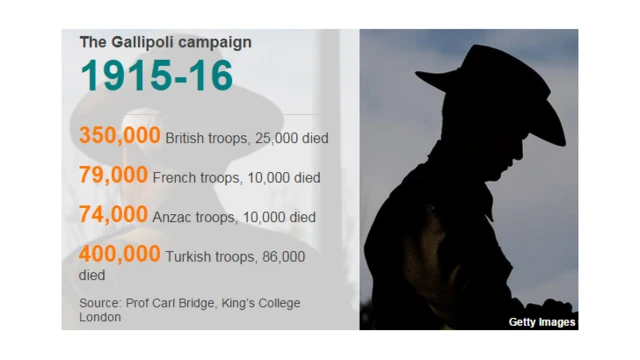What's happening today?published at 09:26 BST 24 April 2015
Prince Charles and Prince Harry are among world leaders due to attend services at the site of the battle at Cape Helles, on the Turkish peninsula.
Leaders from Australia, New Zealand and Turkey will also attend events.
Warships from what were the Allied nations will fire a salute in honour of the sailors who died, while Prince Charles and Prince Harry will lay wreaths, before meeting descendants of veterans on board the Royal Navy's flagship, HMS Bulwark.
